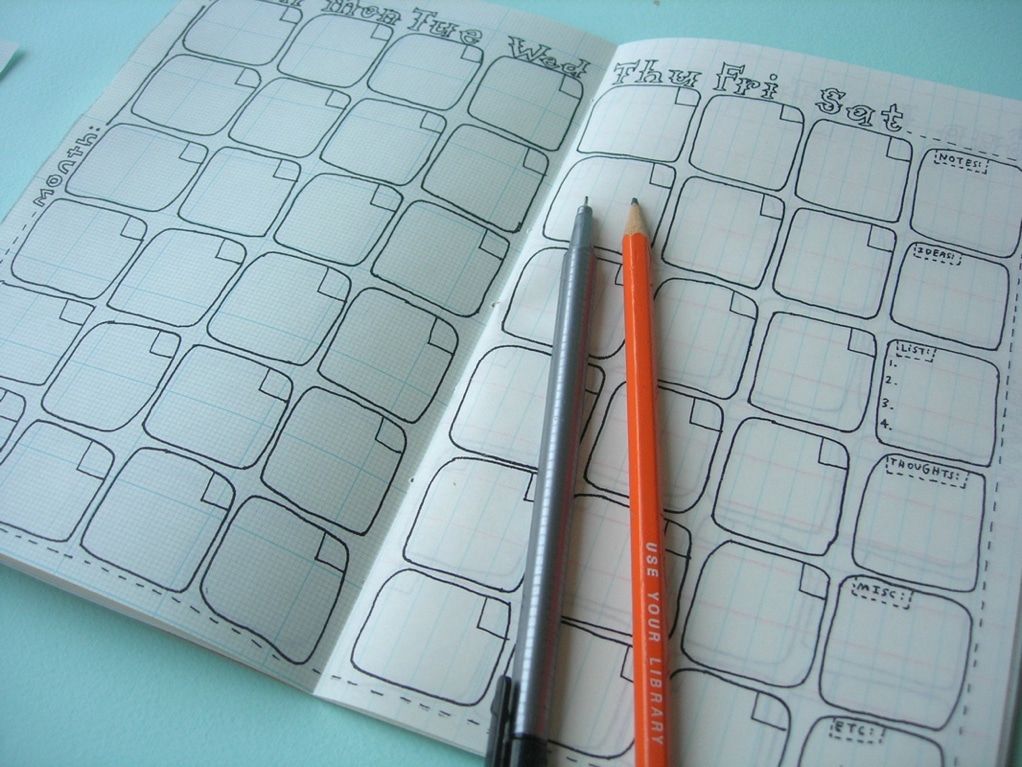
I spent the first 13 years of my career in office jobs. One of the most frustrating aspects of office life was clocking in for at least eight hours every day, whether the work called for it or not.
The office atmosphere provided an immovable structure that was meant to keep employees on task each and every workday of the year. It forced both me and the people I supervised to sit there day in and day out—sometimes frazzled and overworked, sometimes just trying to look busy.
The environment didn’t honor the rhythms, the ebb and flow. We all could have been more successful if it had. I’ve been my own boss for five years now. I sit at my desk about half the time that I used to, and I get more work done.
As my own boss, I also see the other side of things. I don’t get paid unless I do the work; and if I don’t do it, nobody else will. This reality has forced me to create a structure that helps me truly be successful. And it’s not the eight-hour-grind-at-your-desk kind of work.
Instead, it’s a loose structure that includes incentives, connections, creative output, and good old-fashioned deadlines.
Create incentives

Being self-employed, it’s my responsibility to make my job worthwhile. Incentives mean there’s something in it for me.
People are motivated by different things: My husband will do almost anything for a synthesizer or drum machine; I have a friend who wants to take July off every year, pick her kids up from school every day, and be able to take afternoon baths when she wants. Here are some incentives that make my job worth it to me:
- Being paid well for my work (duh).
- Creating work that I’m proud of.
- Having my “right people” reach out and want to work with me.
- A good mix of clients and projects, which means I’m not bored.
- Tax write-offs for books, movies, and work travel.
- Spontaneous coffee/lunch dates and days off. I’m stealing afternoon baths, too.
- The freedom to work remotely and/or take extended time off. I worked in Portland for a month one year. I’d like to try Paris soon as well.
- Treating myself for staying focused. A treat can be as simple as grabbing coffee with a friend as a reward for a morning of solid work. Or as luxurious as buying a piece of jewelry as a thank you to myself for a job well done. I’m such a good boss!
- Building wealth, not debt. Having my own travel savings account.
Stay connected

People are very important to me, but as an introvert who works at home, it’s sometimes easier to keep my own company. As my husband likes to say, “You love you.” He’s right, I kinda do!
But I’m also a social animal; I’m human after all. Connecting with others is where the beautiful things of life happen, and I don’t ever want to miss out on that magic! So I try to be intentional about staying connected to my clients, partners, and the people I love. That means I strive to:
- Show up and be real. Bring my whole self to my work and interactions with people.
- Stay connected to my clients. Facilitate an honest, engaged, and communicative relationship. Make their job easier and lighter. Be responsive when they reach out to me. Strive to make them thrilled to have me on their team.
- Be a good team member to my partners. Support them and make them look good every day. Do my part in making a safe place to challenge and critique and push each other to be better. Make jokes and laugh together.
- Schedule face-to-face meetings and video calls to supplement email, chat, and phone calls.
- Remember: I want my reputation to go before me and facilitate better connections with others. What did I do today to make that happen?
- Engage the people who are closest to me. Respond to their petitions for my attention. Reach out. Make them feel important, because they are.
Do something

I could read, watch, and absorb information all day. But what is the point if I am not also contributing something of my own to the world? I personally feel happy and grounded when I am creating something—so putting out good work is a mark of success for me.
Sometimes I think of it as trying to make my “output” greater than my “input.” This is a huge challenge for me given the internet, my love for poetry and novels, and the six seasons of Parks and Recreation on Netflix. I try to practice a few things:
- Create something every day.
- Closely track billable hours and review them regularly. Am I productively working as much as I think I am? Sometimes I can be a little too generous with myself so the cold, hard facts help me to stay on track.
- Be aware of my consumption and try to balance it with creative output.
- Happily ride bursts of work as they come and allow enough time for rest and creative rejuvenation in between. Don’t worry about becoming a “workaholic” unless you really are one (I’m not).
- Take personal writing and development times in the morning.
Commit to finish

Deadlines are so good for me. “Do something” can be nebulous, so let’s also put something concrete on the calendar. Something actionable that will move me closer to a finish line. I make sure to:
- Set deadlines and stick to them. When possible, finish a day ahead of schedule, just to wow ‘em.
- Create actionable milestones so I know I’m making progress.
- Write things down. Printable to-do lists are perfect for that.
- Pay attention if I’m missing deadlines or submitting subpar work just to “make a deadline.” This is a major clue that something is off.
- If something is indeed off, ask myself, “Why?” Do I have the information and resources I need? Is the client on board and communicating with me? Am I managing my time responsibly? Have I overbooked? If so, what can be tweaked? Always look within before blaming the client or circumstances. (Better yet, never shame and blame anyone, including myself.)
- Remember: People are counting on me to deliver what I say I’ll do. If I don’t, why would they want to work with me again or recommend me to someone else? And how could I feel proud?
- Allow enough time for revisions. I know they’re going to come up!
How has this structure worked out for me so far? Well, let’s talk about how I’m writing this article, for example.
It’s 10 a.m., and I’m propped up in bed with my laptop. A second cup of coffee sits on the nightstand next to me; my husband brewed a pot earlier this morning. When he brought me my first cup, I made a point to look up from my screen and was rewarded by him pointing out a beautiful spot of sunlight playing on the wall. That little moment we enjoyed together might turn out to be my favorite of the day.
Right now, I’m working in a comfortable setting, engaging a topic that I’m interested in. I feel connected to both my work and someone in my life. I’m creating something. A client calls and we talk through the phrasing for a new line on their company website. They just launched, and I’m making a point to be available to them now.
As we hang up, she says, “Thanks for picking up on the fly!”
“That’s what I’m here for,” I say.
My deadline for this article is today, and you know I’m going to make it on time. This is a very good day—the kind that sounds like a sigh of success.







Comments ( 2 )
jen cleveland
March 7, 2015
This is great. It encourages me to find the unique structure that I can work with and live within. It is something I'm missing but seriously pursuing, and this helps me fill in some blanks. Thanks Daphne!
Daphne
March 9, 2015
Thanks Jen, I'm glad it has helped! It's taken me a while to learn it myself. :)
Hunter
March 6, 2015
Great article! I have been self-employed going on now 3 years. When I started my company (HNH Marketing) I thought it would be great! Ton's of creative freedom, sunshine and roses. Well, it isn't quite all that if you don't have good structure, and that has been one of the biggest lessons I have had to learn. Just like you point out in your article, setting deadlines and creating achievable milestones are extremely important for success in this field. Thanks for the good read! - Hunter
Daphne
March 9, 2015
Hunter, It's been one of my big lessons learned, too. I'm naturally not big on structure, but I think everyone needs it in some form. It's up to us to figure out what kind really works for us. Here's to sunshine and roses! :)